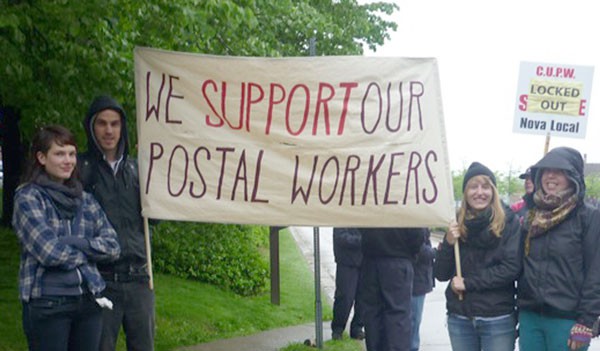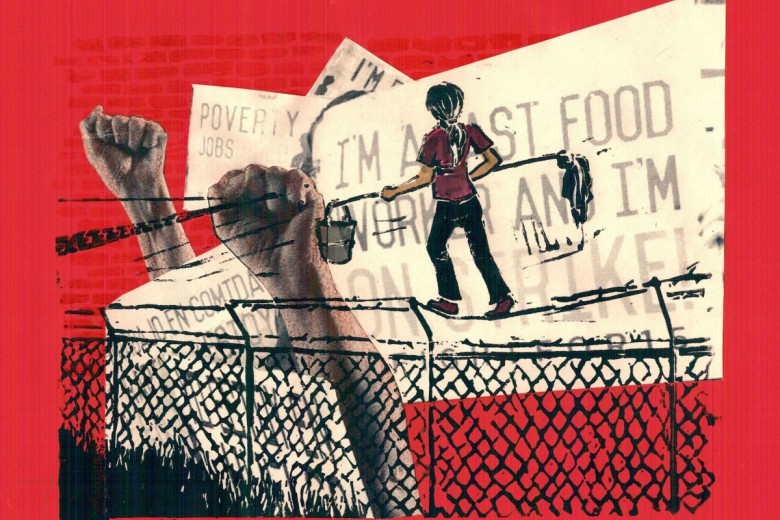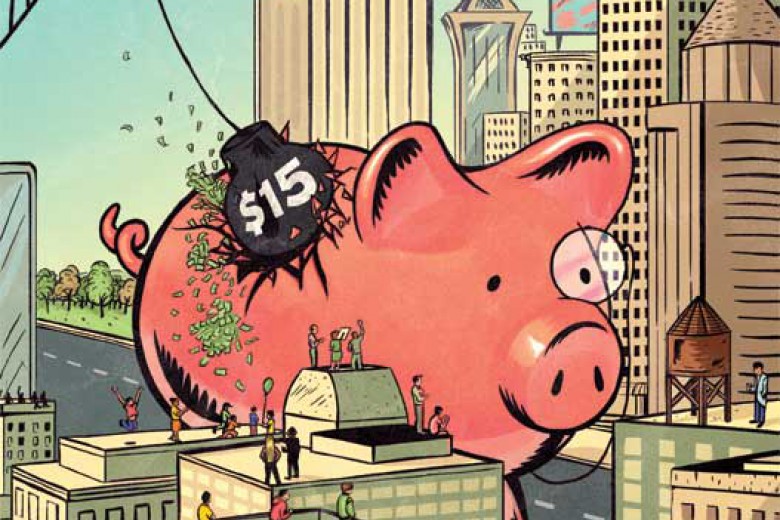
In the current climate of government attacks on the public service and on collective bargaining across Canada, the need for community organizers to build relationships between workers, unionized and not, is now, more than ever, an essential part of mounting an effective challenge to austerity.
In the early spring of 2011, when it was clear that postal workers were heading for a strike or lockout, we were part of a small group of community organizers in Halifax who formed a solidarity group. This project was an early working group of Solidarity Halifax, a series of conferences seeking common ground on the left.
We saw this battle as the first major pan-Canadian labour struggle since the economic crisis began in 2008. We regarded the rollbacks to pensions, working conditions, and short-term disability, and the introduction of tiered wages facing postal workers as part of a strategy to use the economic crisis to cut services, increase profits, and punish public-sector workers across the country. Also, we had friends who were postal workers, and we understood the personal costs of the employer’s demands.
Our small group did many things well. We developed accessible literature explaining the issues. We created downloadable posters and window signs in English and French that were used across the country to show support for workers. We used flyers and posters in a door-to-door campaign that brought activists to thousands of doorsteps to link quality public services and working conditions. We used social media aggressively. We did all of this before rotating strikes even hit Halifax. During the lockout, we organized picket line support and rallies. Our early organizing along with our pre-existing relationships with postal workers and the local labour council allowed us to do much with little.
Even though we organized before the lockout, we were still unable to get widespread support from many activists, largely because of a triage mentality on the left of only responding to the latest crisis. The fast-changing terrain of struggle created all sorts of internal organizing problems, and we could not make room for political discussion. We did a bad job of following up on contacts built on the line with community members and postal workers. Our group was trapped because our campaign was not situated in a broader strategy to build relationships and connections between organized and unorganized workers.
Community organizers are familiar with solidarity rallies and various forms of picket line support for striking workers, but our campaign attempted to shape the public perception of the workers and move our neighbours to see the connection between the struggle of these workers and the public services they depend on. The campaign needed to be part of something larger if it was to deepen the relationships we had fostered.
We want to share these lessons because any forceful fight against austerity in Canada will require a strategy that brings together public-sector workers and people who access public services. These two overlapping groups are the vast majority of Canadians and include many people who will need to be won over to the politics of solidarity in the face of the right’s attempts to divide.
That does not mean that the left should claim to have all the answers. We believe that it is a mistake to tell workers the radical left would like them to participate in a general strike because we brought them soup on the line or organized a demonstration.
Workers don’t owe community organizers anything. We shouldn’t expect people to just agree to do what we think is a good strategy. In our solidarity work, we didn’t pretend to know what was best, and we took direction from the workers. In our experience, solidarity work is most effective when it talks to people where they are, without assuming to know who people are or what their political analysis is. We didn’t expect every worker to want to join our movements right away because building solidarity is a lengthy process.
Our experience leads us to believe that organizers need to be dedicated to long-term strategies to develop worker solidarity and collective analysis. This requires that we learn about union structures, the complexities of labour disputes, and the differences between unions. Knowing these intricacies, their limitations and potentials, will create a deeper understanding and lead to more effective strategies.
We as community organizers need to build structures of solidarity that can move the struggle against austerity from reactive battles to long-term strategic campaigns. We need to prepare for the attacks before they come so we can define the narrative of the battle and build strength and solidarity even in short-term defeat. To do this, community and labour activists must start building an infrastructure of solidarity capable of enacting long-term social change.





_780_520_90_s_c1.jpg)
